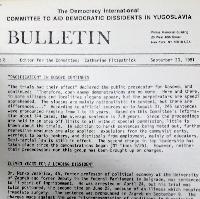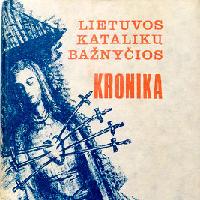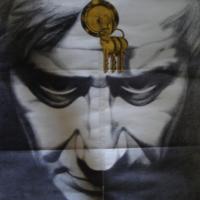The C.A.D.D.Y. Bulletin collection is made up of bulletins issued by the New York-based Democracy International’s Committee to Aid Democratic Dissidents in Yugoslavia (C.A.D.D.Y.) from 1980 to 1992. The bulletin focused on human rights violations. These bulletins illustrate the various ways intellectuals and cultural workers in opposition to the Yugoslav communist regime were persecuted. The C.A.D.D.Y. Bulletin collection is now owned by the historian Srđan Cvetković and is currently stored in his office at the Institute for Contemporary History in Belgrade.
-
Vieta:
-
Temos:
-
Charakteringi eksponatai:
The CNSAS Online Collection (CNSAS – Romanian acronym for the National Council for the Study of the Securitate Archives) illustrates how the communist secret police, the Securitate, conceptualised: (1) oppositional groups and individuals in communist Romania; (2) the forms in which this opposition manifested against the party-state; and (3) the transnational support it received from the exile community and foreign organisations. It also encompasses an impressive amount of invaluable information about the inner mechanisms of the Securitate, its institutional development and relationship with the Communist Party, the use of repression against any form of opposition, and the use of surveillance to avoid the development of oppositional groups and networks during its over forty years of functioning. In brief, this collection offers a comprehensive image of the means and methods used by the communist secret police, the Securitate, to deal with the anti-communist opposition between 1948 and 1989, and the response it received from oppositional groups and individuals.
-
Vieta:
-
București Strada Matei Basarab 55, Romania 030167
-
Temos:
-
Įkūrimo data:
-
Charakteringi eksponatai:
The Casual Passer-By Collection by the Bosnian-Herzegovinian conceptual artist Braco Dimitrijević consists of eight photographs and two posters (portraits) created in Zagreb and Belgrade in 1971. The photographs and posters (portraits) were the foundation of his three performances from the "Casual Passer-by" series staged in Yugoslavia. They were subversive performances in which the author hung portraits of chance passers-by in public spaces, otherwise intended for executives, in this way questioning established forms of communication in the public space of a socialist state.
-
Vieta:
-
Zagreb Avenija Dubrovnik 17, Croatia 10000
-
Temos:
-
Įkūrimo data:
-
Charakteringi eksponatai:
Pogrindyje publikuota spauda buvo gerai organizuota ir konceptualiai pagrįsta savilaidos forma. Kolekciją sudaro du pogrindžio leidiniai, tai Lietuvos katalikų bažnyčios kronika ir Rūpintojėlis. Kronika kaip pogrindžio leidinys išliko ilgiausiai, savo publikacijose pateikdama sovietų skleidžiamoms žinioms alternatyvią informaciją. Jei Kronika buvo inicijuota katalikų kunigų, tai Rūpintojėlis buvo labiau tikinčiųjų iniciatyva, kuris tapo pripažintu leidiniu dėl aukšto kultūros ir intelektualinio lygio.
Kolekciją sudaryta iškeltos šaltinių: Lietuvos ypatingajame archyve yra saugomos iš KGB paveldėti leidiniai, taip suskaitmeninti Kronikos leidiniai, patalpinti internetiniame puslapyje http://www.lkbkronika.lt.
-
Vieta:
-
Vilnius Gedimino prospektas 40, Lithuania 01400
-
Temos:
-
Įkūrimo data:
-
Charakteringi eksponatai:
The Censored Theatre and Cinema Ad-hoc Collection at CNSAS (the Romanian acronym for the National Council for the Study of the Securitate Archives – Consiliul Național pentru Studierea Arhivelor Securității) illustrates how the Archives of the former Romanian secret police, the Securitate, recorded the intervention of censorship to hinder the development of cultural opposition in Romanian theatre and cinema during the communist regime. The documents of the collection show that despite the gradual strengthening of political control over the cultural sphere beginning with the late 1960s, Romanian directors and actors managed on several occasion to bypass censorship. As a result their artistic work running counter to the official cannon, which reinforced socialist realism after the Theses of July 1971, reached a large audience, albeit only for a short period. This collection highlights the case of one of the few Romanian directors banned by the communist regime, Lucian Pintilie. His biography epitomises the destiny of a Romanian artist whose refusal to reach any compromise with the political authorities contributed to his marginalisation in Romanian cultural life while at the same time his work was acclaimed abroad.
-
Vieta:
-
București Strada Matei Basarab 55, Romania 030167
-
Temos:
-
Charakteringi eksponatai:





